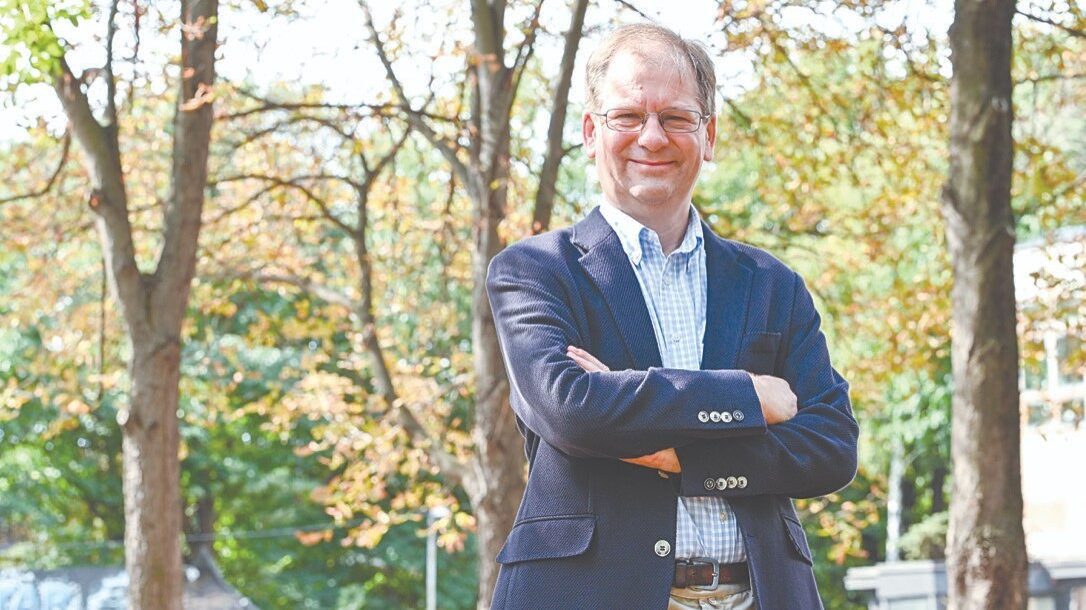We are the only organisation in the UK looking after Serbian economic and commercial interests and work closely with the Serbian Embassy in London.
Richard Robinson, Executive Director BSCC Serbia talked with us about British investments, business environment and workforce and nearshoring in Serbia.

What can Serbia and the WB6 do to attract even more British investments in the future?
The British Serbian Chamber of Commerce is working hard to attract investment to Serbia. We are regularly receiving new enquiries and support them in whatever way is needed providing information, advice and introductions in Serbia. We are the only organisation in the UK looking after Serbian economic and commercial interests and work closely with the Serbian Embassy in London. In a post Brexit world, many UK businesses are considering investing the Western Balkans for the first time. Also, the Serbian government should continue its successful programme of digitalisation and continue improving the business environment. And of course, we would like the Serbian state to put more resources into investment promotion.
Recently, we supported several Serbian food and drinks companies to attend in London IFE, the premier UK food and drink trade fair. Following the companies’ success there, both the Serbian and Vojvodina Chambers of Commerce (PKS and PKV) are now planning to attend next year.
Three out of six Western Balkan economies have joined the Open Balkans initiative. The new Montenegrin PM, Dritan Abazović, claims Montenegro will be the 4th country to join. Do you think that this initiative would facilitate FDIs and trade since the market is going to become much bigger?
We welcome any initiative that makes it easier for investors to treat the Western Balkans as a single economic area. The Open Balkans Initiative (OSI) has a long way to go. I believe that the OSI will need to establish a permanent secretariat and develop enforcement mechanism as it becomes more successful. However, the OSI is not the only means of achieving greater economic integration. Building on the successful new bilateral trade treaty, the BSCC is working with the PKS and the British Chambers of Commerce in London to persuade the UK to join the Pan Euro Mediterranean (PEM) Convention on Rules of Origin enabling regional sourcing to become tariff free. We also have members who continue to rely on CEFTA for the legal basis of regional trade. Ultimately, all these different treaties and bodies are the means to achieve the goal of greater economic integration.
British companies are traditionally more orientated towards the Commonwealth and the EU. Is this because of inertia or Serbia is simply worse regarding the business environment and workforce?
As exporting to the EU has become more bureaucratic for many UK companies, it has become relatively easier to export to the Western Balkans. So, many of them are looking at the Western Balkans and Serbia in particular, as an export market.
We welcome any initiative that makes it easier for investors to treat the Western Balkans as a single economic area.
The improvement in the Serbian business environment acts as additional encouragement. The BSCC hopes that the new government prioritises customs processes as one of the next areas of its digitalisation programme as this improve matters further following the UK example introducing new online customs systems later this year.
We have to overcome the energy crisis this year, as well as the disruption of the old routes of trade with Russia and Ukraine. How can the UK help the WB6 countries with these problems?
The UK has much to offer Serbia both in addressing the immediate energy crisis and in helping Serbia achieve its decarbonisation targets. Earlier this year, the UK Minister of Energy, Greg Hands, visited Serbia. We will see the first results shortly including a signed memorandum of understanding. Meanwhile, the UK is a good source of expertise and finance for renewable energy generation: UK Export Finance . the UK credit guarantee agency, is very active in this area. One of our members, Vanguard, is working with Serbian Railways to retro fit locomotives to run on green hydrogen.
Is nearshoring an opportunity for Serbia in the context of the EU+UK markets?
There are nearshoring opportunities in a wide range of sectors and an UK companies approach the BSCC regularly asking for help in sourcing. We work closely with both PKS and PKV to identify appropriate Serbian companies. How big the opportunities are for nearshoring will depend on a wide range of international trends including the Russian Invasion of Ukraine and the continuing logistics problems and the consequent costs of shipping from the far east, especially containers from China. I believe that Serbia is in a good position to exploit these changes and the BSCC will work hard to connect UK and Serbian companies and increase bilateral trade.